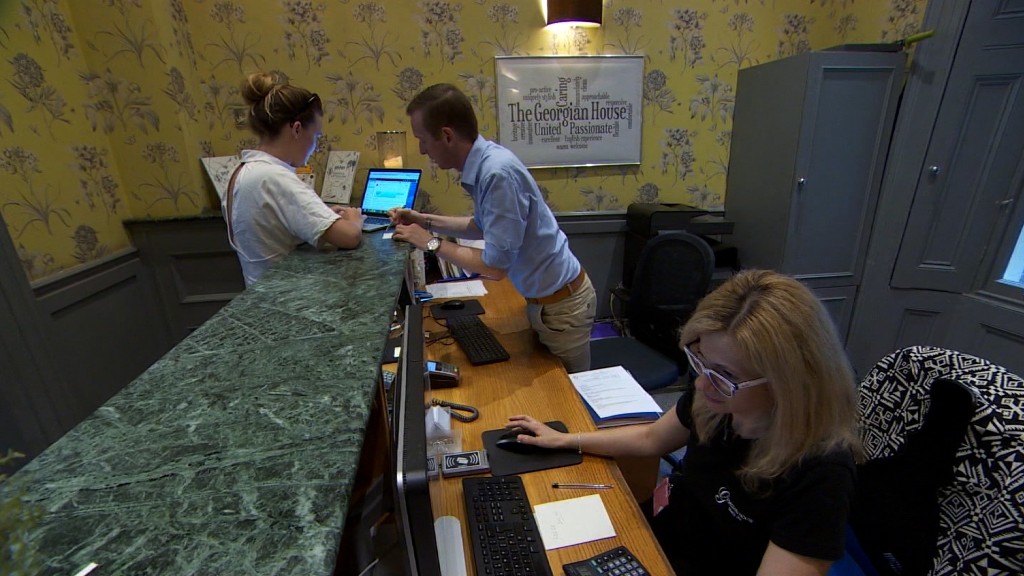
Britain wants to slash the number of low-skilled European Union workers coming to its shores after Brexit, according to a draft paper published Wednesday by the Guardian.
If implemented, the policies risk acting as a drag on economic growth by denying entry to immigrants who contribute more to Britain's economy than they take out.
Business leaders, who have generally argued for a more open approach to immigration, were quick to react. The Food and Drink Federation said it was "alarmed" by the plans.
"If this does represent the government's thinking it shows a deep lack of understanding of the vital contribution that EU migrant workers make -- at all skill levels," said director general Ian Wright.
Related: Britain to slash EU migration after Brexit, leaked paper says
The leaked document acknowledges that EU migration has, in many ways, been positive for the economy. But it said the government was concerned with more than GDP.
"To be considered valuable to the country as a whole, immigration should benefit not just the migrants themselves but also make existing residents better off," the paper argues.
Related: U.K. low unemployment is not as good as it sounds
The evidence suggests residents are benefiting, and there will be a price to be paid for ending the free movement of EU citizens to Britain.
According to a 2016 study by University College London, immigrants who arrived from the EU after 2000 contributed £1.34 to the U.K. economy for every £1 they took out.
The study analyzed data from 2001 to 2011, looking at the difference between taxes and other contributions migrants make to public finances, and the costs of the services and public benefits they receive, such as free healthcare and tax credits.
The UCL study found that immigrants from eastern European countries contributed £1.12 for every £1 received. Those from the rest of the EU put in £1.64 for every £1 taken out.
Related: Brexit Britain has too many jobs and not enough workers
A separate analysis, published by the U.K. Office for Budget Responsibility in 2013, found that higher net migration would reduce pressure on government debt over time because incoming migrants are more likely to be of working age than the population in general.
Roughly 3 million people from other EU states live in the U.K., and many sectors rely on their contributions.
Some 12% of all medical staff in the public sector are non-British, according to a parliamentary report. Ten percent of registered doctors come from other EU countries.
According to the Food and Drink Federation, over a third of permanent workers in the food supply chain are EU nationals. KPMG found that 75% of waiters and waitresses, 25% of chefs and 37% of housekeeping staff are from the EU.
Related: Brexit is going nowhere fast
Immigration was a major campaign issue ahead of the Brexit vote, and there is evidence that the pending divorce is already deterring some EU migrants from coming to the U.K.
Data from the Office for National Statistics showed net migration from the EU fell to 133,000 last year from 184,000 in 2015.
Defense Minister Michael Fallon said Wednesday that while immigration should be curtailed, the government must strike a balance.
"We're not closing the door on all future immigration but it has to be managed properly and people do expect to see the numbers coming down," he told the BBC.


